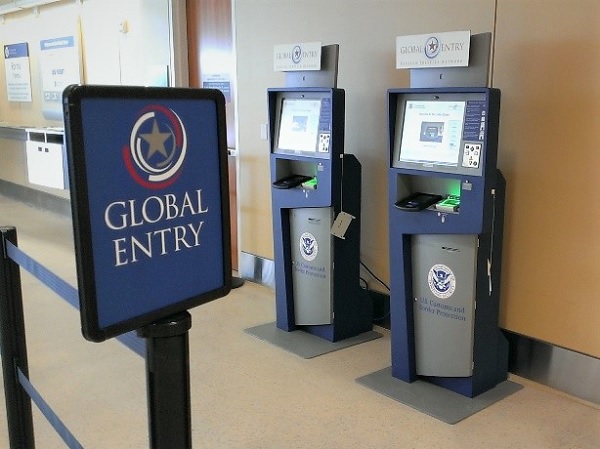
Attorney Scott Pilutik wrestles with the news of the day, from a lawyerly perspective…
It’s being reported that the DHS is suspending the Global Entry program for New York State residents only. This feels unconstitutional in a hundred ways so settling on just one isn’t easy.
Global Entry is a DHS program, like TSA Precheck, that affords participants the awesomeness of nominally less airport screening and scrutiny. For this privilege, participants agree to be subjected to an FBI background check and interview. Creepy, sure, but that’s the price for shorter lines. I have Global Entry (and since this post is public, if any class action lawyers out there are looking for a plaintiff, I’m totally your guy).
I’ve seen a lot of reactions from lawyers today, all of whom are pretty certain of its unconstitutionality yet aren’t quite sure why.
The equal protection clause comes immediately to mind. It’s a federal program that the federal government is suddenly administering with an overt discriminating intent. But equal protection clause analysis adheres to a three-tiered “standard of review” and only “suspect classifications” (e.g., race, religion) typically meet that review. In other words, the government needs to show that it has a compelling interest to overcome the fact that it’s meting out disparate treatment along, say, racial, lines.
At the other end of the review spectrum, “rational basis,” the government needn’t show a compelling interest, only that it had some legitimate basis to pass the law.
So under an equal protection clause analysis, the question of which classification the injured party fits into is paramount. Here, citizens of one state almost certainly aren’t a “suspect class.”
Other possibilities abound, though.
One is the famously underused (read: never) privileges and immunities clause, which despite all the cobwebs, feels kinda right here.
“The Citizens of each State shall be entitled to all Privileges and Immunities of Citizens in the several States.”
The plaintiffs in the Slaughterhouse Cases (1873) didn’t quite view it the way I’m suggesting — they sued to prevent Louisiana from granting a slaughterhouse monopoly, thus depriving them of the “privilege” of operating their own slaughterhouse, whereas I’m suggesting that the federal government is depriving the citizens of one state a privilege which they readily afford to the citizens of other states. The Slaughterhouse Cases plaintiffs lost when the Court reduced the clause to a redundancy, holding that the only “privileges and immunities” recognizable were those already found elsewhere in the Constitution. Poof.
But what I find compelling is that the clause’s plain language speaks directly to the disparate treatment of citizens of different states. Like here, where the federal governmentt, by the President through one of its regulatory arms, is withholding a privilege it’s otherwise extending to the citizens of other states.
I’m compelled to also point out that the Administrative Procedure Act (APA) would also likely bar this action as arbitrary and capricious, had the change been brought on by anyone other than the president. The APA requires that changes to administrative regulations be forced to jump through numerous hoops, such as notice and comment. The reason that the Supreme Court recently shot down Wilbur Ross’s census change was because his Commerce Department couldn’t be bothered with jumping, much less hoops.
However, the Supreme Court has held twice now (in Franklin v. Massachusetts and Dalton v. Spencer) that the APA, in distinct instances, did not apply to the President. The scope of the president’s immunity to the APA is unclear though. The Franklin case concerned a method of census counting and Dalton was about closing a naval shipyard. Small potatoes relative to the number of people who will be impacted by this change, which may cause a judge to take a dimmer view of the breadth of the president’s power, especially with so many other constitutional principles in play.
There’s also an additional breadth problem here, that being how the enforcement of this regulation is almost comically overbroad. Every New Yorker, and only every New Yorker with Global Entry is impacted. Tens of thousands of people, easily, probably nearer to six figures.
The ostensible reason Trump is punishing New York is because New York won’t share its DMV database (which contains criminal violations) with the federal government, which (again, ostensibly) wants to enforce immigration policy. But New York has compelling interests to issue driver’s licenses to drivers irrespective of their immigration status, public safety sitting high atop that interest list. And New York, having witnessed ICE drag suspected visa-violating immigrants out of courtrooms who merely showed up to pay a parking ticket, is right to protect all residents from stormtrooper deterrent tactics posing as immigration enforcement.






